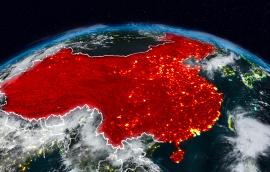Elections in Argentina’s Vaca Muerta: Neuquén 2015
Under Argentina’s federal constitution and jurisprudence, the provincial governments play a prominent role in the…
Mark P. Jones April 27, 2015

Under Argentina’s federal constitution and jurisprudence, the provincial governments play a prominent role in the…

Part 2 of a two-part blog on China’s economy. Part 1 can be found here.
At this point, projections indicate that a…







